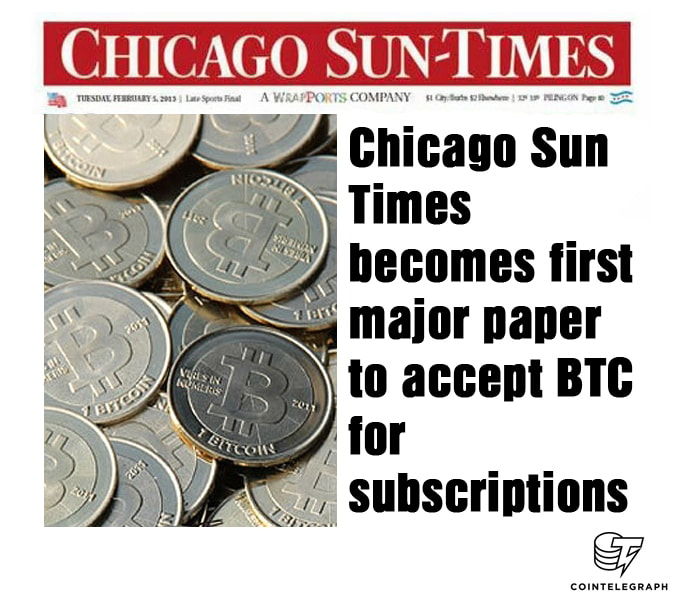The Chicago Sun-Times, one of America’s 10 largest newspapers by readership, rolled out Bitcoin payment processing this week, becoming the first major newspaper to do so.
The Sun-Times experimented with a Bitcoin paywall earlier this year in a bid to keep pace with the rapidly changing media landscape, and Editor-in-Chief Jim Kirk said in a release that Bitcoin underscores his newspaper’s desire to stay digitally focused.
"We were encouraged by our paywall experiment in February," Kirk said via Twitter. "We believe there is an opportunity here to expand our readership with Bitcoin."
The Sun-Times is using Coinbase to process transactions. You can see the subscription page at btc.suntimes.com.
February’s Test
On February 1, the paper put up an experimental paywall via BitWall.
Users visiting premium content on that day were offered two choices: To send a microdonation in Bitcoins or to Tweet out a link in support of the Taproot Foundation, an organization with which the Sun-Times has worked for years.
The experiment saw about 700 Bitcoin donations made that day.
“The big picture was testing Bitcoin as a payment method and showing that there is an appetite for consumers out there to use this technology, and do it easily,” BitWall CEO Nic Meliones said of the paywall experiment.
The Sun-Times’ Recent Troubles
Chicago’s 167-year-old daily tabloid is the city’s oldest newspaper.
In recent years, like most American newspapers, it has fallen on hard times financially. Early
2008 saw a couple of rounds of layoffs of veteran journalists and a restructuring of the paper itself. A year later, the paper had to file for bankruptcy protection.
The paper was home to the late American film critic Roger Ebert, who managed to keep access to his reviews free after the paper erected its first paywall in 2011.
In May 2013, the paper laid off the majority of its photographers.
"The Sun-Times business is changing rapidly, and our audiences are consistently seeking more video content with their news,” newspaper representatives said in a statement at the time. “We have made great progress in meeting this demand and are focused on bolstering our reporting capabilities with video and other multimedia elements."
